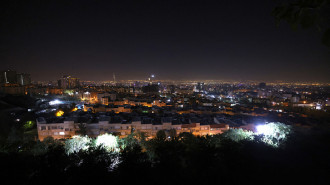US Congress asks State Department to clarify if Syria is a 'Narco State'
Members of the US Congress and Senate sent a letter to the US Secretary of State last week, requesting that the Biden administration determine whether Syria should be designated a "major drug transit country."
The letter sent on 15 July said there has been a "troubling increase in Captagon exports from Assad regime-affiliated networks", which "represents a security threat to the region itself." Captagon is methamphetamine designed to treat narcolepsy but popularised in media for its use by fighters in Syria's civil war.
A US Senator and two congresspeople, including French Hill, who introduced the CAPTAGON Act, signed the letter. The law, passed as an amendment to another bill last week, mandates that the US government create a "multi-agency strategy to disrupt and dismantle Syria's drug networks."
If the US designates Syria as a major drug transit country, it can no longer provide Syria with certain types of foreign aid. Humanitarian assistance, such as the provision of food and medicine, would not be affected by this designation.
The US will publish an annual report on September 15 that identifies all countries determined by the executive branch to be major drug transit countries.
Last year, Syria was not one of the 22 countries designated as a drug transit state.
The Assad regime is suspected to be a global hub for Captagon production and smuggling, with estimates of the annual trade reaching as high as $US 5.7 billion – quadruple Syria's 2021 state budget.
Nearby states such as Jordan and the Arab Gulf have complained of an influx of amphetamine over the last year and accused the Syrian government and its Iranian ally of being responsible. Jordan's King Abdullah II said during an interview in May that "we know who is behind" the attacks on its borders, with analysts concluding he was referring to Iran.

![Palestinians mourned the victims of an Israeli strike on Deir al-Balah [Getty]](/sites/default/files/styles/image_684x385/public/2024-11/GettyImages-2182362043.jpg?h=199d8c1f&itok=xSHZFbmc)


![The law could be enforced against teachers without prior notice [Getty]](/sites/default/files/styles/image_684x385/public/2178740715.jpeg?h=a5f2f23a&itok=hnqrCS4x)
 Follow the Middle East's top stories in English at The New Arab on Google News
Follow the Middle East's top stories in English at The New Arab on Google News

![Thousands of people have fled from Lebanon to Syria as a result of Israel's war [Getty]](/sites/default/files/styles/image_330x185/public/2024-11/GettyImages-2180619380.jpg?h=199d8c1f&itok=q4PK1BtW)
